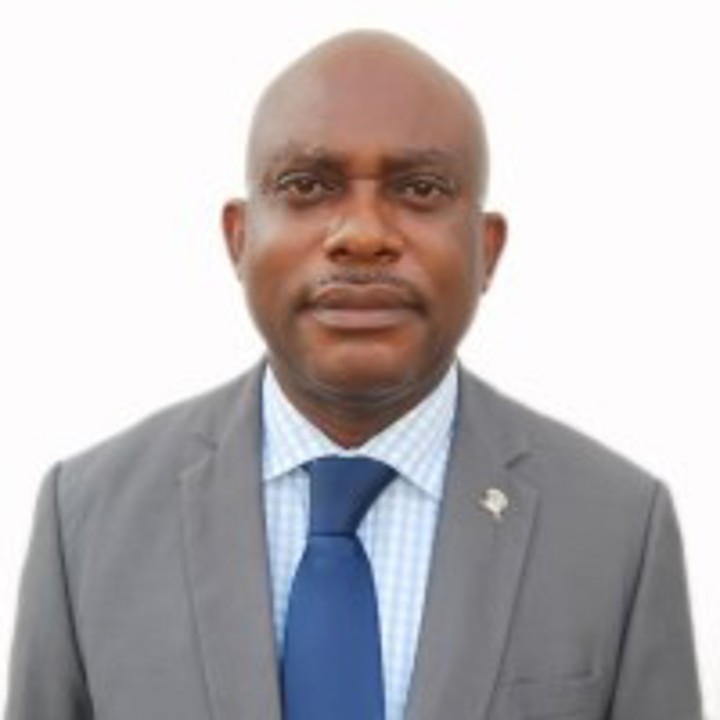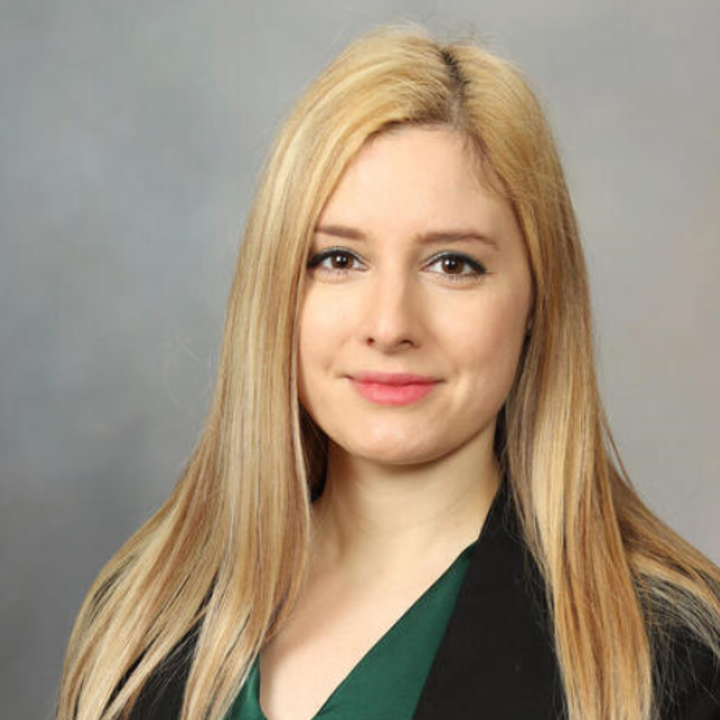
Grants Committee
The Grants Committee oversees the reviewing and allocation of funding for 12 grant schemes, working to ensure that the portfolio continues to reflect the needs of the entire molecular bioscience community, facilitating development and engagement opportunities for all representative groups.
Grants Committee
Grants Committee
9 members
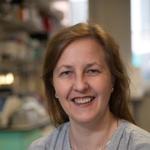
Professor Stéphanie Kermorgant
Professor Stéphanie Kermorgant
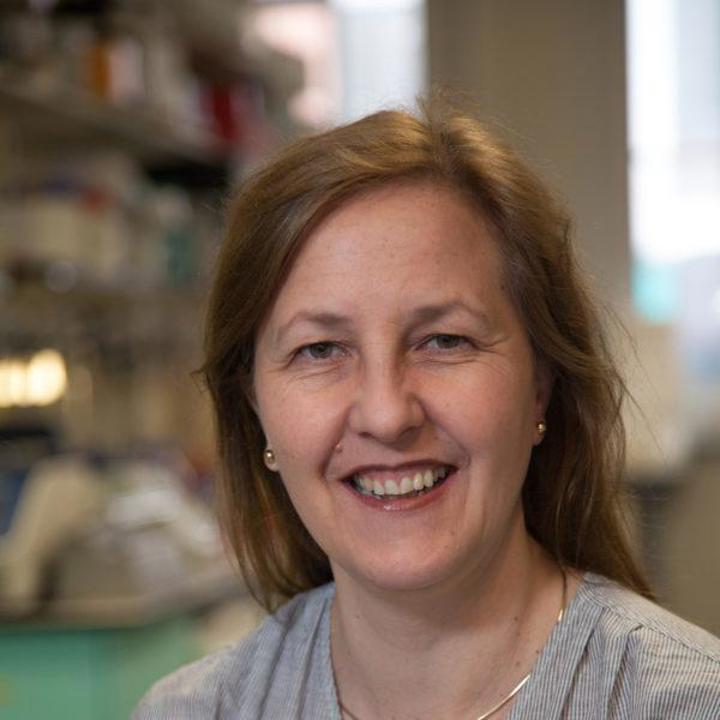
Professor Kermorgant is a Professor in Cellular Oncology at the Barts Cancer Institute. Her group studies the role of growth factor receptor signalling and intracellular trafficking (movement inside cells) in tumour growth and metastasis in the view of improving cancer therapy.

Dr Gavin McStay
Dr Gavin McStay

Dr Gavin McStay studied biochemistry at the University of Leeds, followed by a PhD at the University of Bristol, supervised by Professor Andrew Halestrap, to characterise the molecular composition of the mitochondrial permeability transition pore, with support from MitoKor. Gavin's post-doctoral training on the mitochondrial pathway of apoptosis supervised by Dr Doug Green was at the La Jolla Institute of Allergy and Immunology in San Diego, California and St Jude Children's Research Hospital in Memphis, Tennessee. Gavin is now a Lecturer in the School of Pharmacy and Biomolecular Sciences at Liverpool John Moores University.
Gavin's research interests focus on the roles mitochondria play in aspects of eukaryotic life, ranging from their origin, metabolism, biogenesis and role they play in cell death pathways. These are interrogated using biochemical, molecular biology, genetic and cell biology techniques. Gavin incorporates these interests into his classes to provide an understanding of practical techniques and also the current literature in the field.
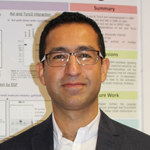
Dr Sassan Hafizi
Dr Sassan Hafizi
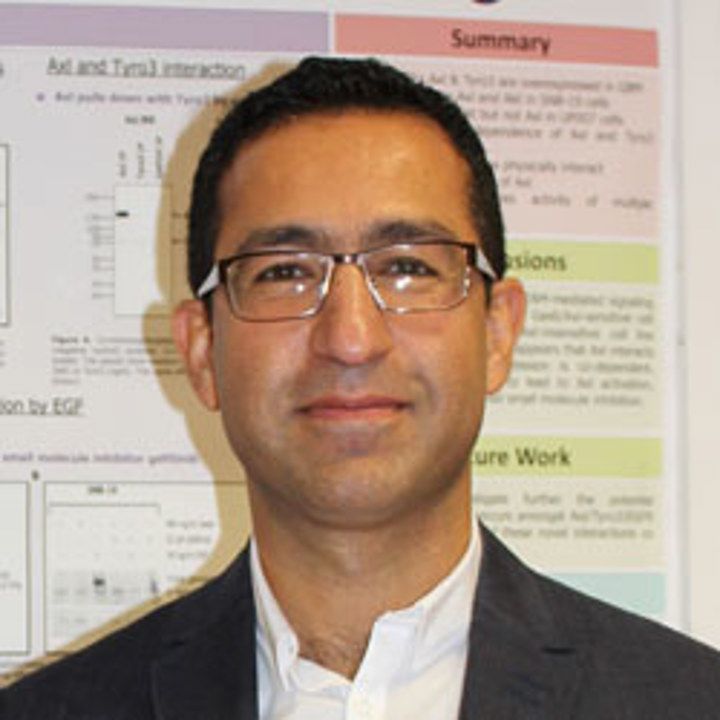
Sassan Hafizi studied for a BSc in Biochemistry at RHUL and a PhD in cardiovascular cell pharmacology from the NHLI, Imperial College London. His postdoctoral research took place at Lund University between 1999-2009 on the molecular/cellular mechanisms of the TAM receptor system. Sassan continued his research work as an independent investigator, until joining the University of Portsmouth in 2009 as a Senior Lecturer. Sassan is now a Reader in Cell and Molecular Biology at the same institution.
Keywords: Receptor tyrosine kinases, vitamin K-dependent proteins, cell signaling, glial cell biology, neuroinflammation

Professor Venkat Kanamarlapudi
Professor Venkat Kanamarlapudi
Venkateswarlu Kanamarlapudi is a Professor of Molecular Cell Biology and Pharmacology at Swansea University Medical School. His current research focuses on understanding GPCR, inositol lipids- and small GTPases-mediated cell signalling in health and disease. Prof. Kanamarlapudi's group efforts have also been focused on the diagnosis & development of targeted therapy for pancreatic cancer & diabetes and the improvement of LVADs. He received PhD from the University of Sheffield and DSc from Swansea University and was elected as a fellow of many learned societies. He has engaged in professional societies (e.g. The Biochemical Society research committee 4 [cells] panel member 2008-2014 and research committee 5 [signalling] panel member 2019-24) and has hands-on experience in grant reviewing and on committees of funding organisations. Prof. Kanamarlapudi has served as a core member of the BBSRC Research Committee D in the past and has been serving currently as a pool member of the BBSRC Research Committee and a member of Health Care Research Wales (HCRW) PhD and research grant committees.
Keywords: Small GTPases, GPCR, inositol lipids, actin, live-cell imaging, cancer, cell signalling, GLP-1 and diabetes.
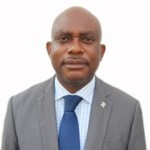
Professor Emeka Iweala
Emeka Iweala holds a B.Sc in Biochemistry from the Imo State University (Now Abia State University) and M.Sc and Ph.D in Biochemistry from the University of Nigeria. His doctoral research focused on the chemopreventive properties of Nigerian plants. He was a visiting research fellow under Prof Yingjun Zhang at the Kunming Institute of Botany, where he further examined the anticancer properties of other Nigerian plants. His current research focuses on the molecular studies of prostate and breast cancer in Nigerian patients. As director of research and chairman of the research committee at Covenant University, he had oversight of the review of funding support for research and publications and the development and implementation of research policies.

Dr Benjamin Foster
Dr Benjamin Foster
Ben carried out his Bachelors and Masters studies in Natural Sciences at the University of Cambridge before moving to the MRC London Institute of Medical Sciences to start his doctoral research with Dr Till Bartke.
During his PhD in London, Ben was investigating the role of combinatorial chromatin modifications and how they are written and read by chromatin reader proteins. Ben continued this research at the Institute of Functional Epigenetics at the Helmholtz Zentrum in Munich as a postdoc with Dr Bartke, focussing on how UHRF1 ubiquitylates histone H3 for its role in maintaining DNA methylation after replication. As a postdoc in Oxford, Ben was investigating the biochemical activity and function of a group of enzymes known as deubiquitylases associated with DNA repair pathways. Currently, he is at the University of Manchester in the group of Christine Schmidt focussing on how both ubiquitin-like modifications and intrinsically disordered regions within proteins function in genome stability.
Ben is an ECR representative on Research Area V (Signalling) and a member of the Early Career Advisory Panel (ECAP) and Grants Committee within the Biochemical Society.
Keywords: Ubiquitin, chromatin, DNA repair

Dr Silvia Radenkovic
After earning her PhD at the Metabolomics Expertise Center, KU Leuven Faculty of Medicine, Leuven, Belgium, and Mayo Clinic (visiting), Silvia completed her research fellowship at the Mayo Clinic Department of Clinical Genomics. She was also a part of the undiagnosed disease network (UDN) Mayo Clinic metabolomics core, whose focus was to help find diagnoses for undiagnosed patients using metabolomics. Currently, she is pursuing medical training in laboratory clinical genetics at University Medical Center (UMC) Utrecht, the Netherlands. Silvia’s research focuses on inborn errors of metabolism, like congenital disorders of glycosylation (CDG). Specifically, she is interested in the metabolic rewiring in CDGs focusing on the heart and brain. She holds expertise in laboratory clinical genetics, different omics techniques such as tracer metabolomics, and different disease models (e.g., patient fibroblasts, induced pluripotent stem cells (iPSC), iPSC-derived brain organoids, iPSC-derived Cardiomyocytes, zebrafish). Finally, she is passionate about research, mentoring, teaching, and scientific communication and she is part of several initiatives for early career researchers including the EMN Metabolomics Society, Biochemical Society and Females in Mass-Spectrometry.
Keywords: Metabolism, Metabolomics, Inborn errors of metabolism, Glycosylation, Sugar metabolism

Dr Georgina Menzies
Dr Georgina Menzies

After gaining a BSc(Hons) in Forensic Science from the University of Glamorgan, Georgina studied for a MSc in Molecular Modelling from Cardiff University and focused on the structure of DNA in cancer hotspot sites at Swansea University for her PhD, under the supervision of Professor Paul Lewis.
After a Ser Cymru II fellowship to study the functional outcomes of dementia genetics, Georgina took up a lectureship at the School of Biosciences in Cardiff University.
Her main research interests involve studying DNA repair pathways and in particular the protein and DNA structural interactions using molecular modelling techniques. This includes modelling techniques including molecular dynamics, coarse grain and mathematical modelling. Georgina also collaborates with a number of other researchers and research groups to provide structural and functional information for their biological structure of interest. This ranges from drugs to anti-bodies and proteins.
Keywords: Molecular Dynamics, Molecular Modelling, Bioinformatics, DNA repair.

Professor Karen Anthony
Professor Karen Anthony

Karen studied biochemistry at the University of Leeds during which time she spent one year as a sandwich student at GlaxoSmithKline (GSK), Essex before returning to graduate with a BSc (Hons) in 2005. At GSK Karen experienced the drug discovery process through the large scale purification of protein drug targets. Developing a strong interest in neurodegeneration Karen joined the lab of Dr Jean-Marc Gallo at the Institute of Psychiatry, King’s College London. Her PhD “tau RNA processing in neurodegeneration: trans-acting factors regulating alternative splicing and mRNA localisation” was awarded in 2009. As a post-doc in Dr Gallo’s lab Karen developed RNA reprogramming strategies for neurodegenerative diseases including RNA trans-splicing therapies for spinocerebellar ataxia type 1 and the tauopathies.
In 2010, Karen translated her RNA expertise to the neuromuscular field and moved to the Dubowitz Neuromuscular Centre, Institute of Child Health, University College London. Working with Professor Francesco Muntoni, Karen played a key role in developing antisense oligonucleotide-mediated exon skipping as a therapeutic strategy for Duchenne muscular dystrophy (DMD). Karen’s pre-clinical and clinical work in this area is helping to expedite the translation of exon skipping candidate drugs to the clinic. Karen moved to the University of Northampton in 2015 as a lecturer in molecular bioscience where she is continuing her research activities on RNA processing and RNA therapeutics for neurological disorders.
Keywords: RNA, neurodegeneration, Duchenne muscular dystophy.

